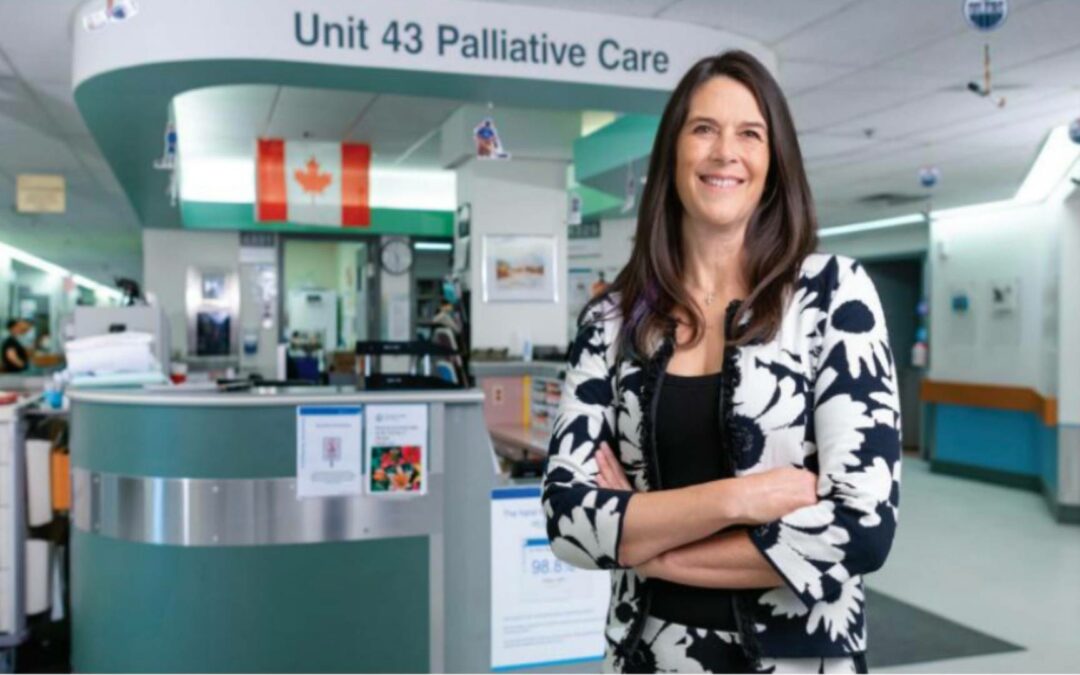When she began seeing more and more patients with life-threatening chronic diseases, internist Amanda Brisebois realized that she was missing something.
“Patients kept coming back, in and out of hospital, and they had so little concept that their lives actually mattered because their disease so completely took over,” Dr. Brisebois says. “Focusing on quality of life is such an important part of patient care, and I felt that even though I was the medical expert, I needed a different type of knowledge to truly help them.”
Her quest for that knowledge led her to the palliative care specialty where she saw patient symptoms, spiritual and psychosocial needs integrated into care. Fourteen years after her internal medicine specialty training, she went back to complete a residency for palliative care speciality training: she is one of roughly 20 palliative specialists in Edmonton.
In addition to furthering direct patient care, Dr. Brisebois wanted to share her new knowledge, motivated by two compelling reasons. “The patient population is huge and growing. It won’t be just palliative care physicians who will be doing most of this work; it’s every physician—family doctor to specialist—who missed robust palliative training,” says Dr. Brisebois. She became an advocate and teacher of palliative knowledge to colleagues in all areas of medicine, not just within the palliative speciality.
Her second motivation comes from the question of how we live our best lives. As someone who lives with a chronic illness herself, Dr. Brisebois knows caregivers’ palliative training helps patients incorporate illness into their lives rather than being consumed by it. “It’s helped me as a physician focus on peoples’ lives, not their deaths,” she says.
About five years ago, with little administrative experience but believing that physician leadership was the way to create change for the better, she took up the role of medicine facility chief at the Grey Nuns Hospital. In that role she has mentored and supported colleagues to be their best selves, have their best careers and ultimately improve their wellbeing. In early 2019, she became the medical director of the Grey Nuns Hospital. Despite her heavy administrative and clinical commitments, she continues to be a highly acclaimed teacher, her enthusiasm for the medical profession resulting in her 18th teaching award in 2019.
“I don’t know if I believe that there has to be some big mission in life, but I believe you make a difference on a daily basis for people.” says Dr. Brisebois. “When someone shakes my hand and says I made a difference when their family member was dying, that’s where I get my reward.” Promoting positive health care changes and collaborative leadership gives her a similar positive outlook on the future of health care.
Or Amanda Brisebois is Clinical Professor in the Division of General Internal Medicine in the Faculty of Medicine & Dentistry’s Department of Medicine. She is on the Royal College of Physicians and Surgeons o I Canada’s (RCPSCI exam comminee to create the new Palliative Care Subspecialty Fellow exam, as well as the General Internal Medicine RCPSC Exam Committee.


Recent Comments